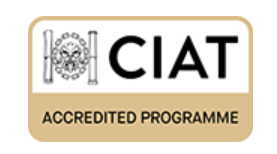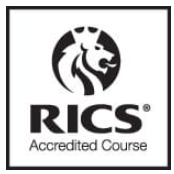Partnerships in the School of Architecture and Environment
At the School of Architecture and Environment, we are proud of our diverse partnerships with industry, educational, governmental, and third-sector organisations.
These collaborations keep our teaching and research current, and ensure our courses remain relevant to market demands and technological advancements.
Many firms contribute directly to course content, offering real-world scenarios and challenges.
Our partnerships and ongoing professional body accreditations ensure our students develop the knowledge, skills and competencies to align with industry and excel in their careers.

International educational partners
We're actively expanding our transnational education (TNE) partnerships to offer a growing portfolio of accredited, franchised, and top-up courses. These collaborations provide international learners with flexible access to UWE Bristol’s high-quality education in architecture and the built environment. Our partnerships also support student mobility, with opportunities for both inbound and outbound exchange, enriching the academic experience and encouraging global perspectives.
School for Higher and Professional Education
 The School for Higher and Professional Education (SHAPE) in Hong Kong is a leading institution offering a wide range of academic and professional courses, preparing students for success in their chosen fields.
The School for Higher and Professional Education (SHAPE) in Hong Kong is a leading institution offering a wide range of academic and professional courses, preparing students for success in their chosen fields.
Read more about our partnership with SHAPE.
Global College of Engineering and Technology

The Global College of Engineering and Technology (GCET) in Oman is a premier institution offering cutting-edge engineering education. With state-of-the-art facilities and experienced faculty, it nurtures skilled professionals for the engineering industry.
Read more about our partnership with GCET.
City School of Architecture (Colombo)

The City School of Architecture (CSA) in Colombo, Sri Lanka is a distinguished institution dedicated to training future architects. With over 32 years of experience, CSA provides comprehensive academic knowledge essential for a career as a Chartered Architect.
Read more about our partnership with CSA.
British Institute of Engineering and Technology

The British Institute of Engineering and Technology (BIET) in Sri Lanka is an educational institution offering specialised courses and certifications in engineering and technology, shaping skilled professionals for various industries.
Read more about our partnership with BIET.
Auston Institute of Management

Auston Institute of Management in Singapore offers a range of business, management, built environment and engineering courses, providing students with practical skills and knowledge to excel in today's competitive global business environment.
Read more about our partnership with Auston Institute of Management.
UK educational partners
We are currently expanding our partnerships with UK educational institutions. These relationships allow learners in further education colleges to access higher degree qualifications through full and part-time study, and through our portfolio of degree apprenticeships.
Weston College

Weston College is a renowned educational institution in the UK, providing diverse courses and training programmes to students of all ages, fostering personal growth and professional development in a supportive environment.
Other partnerships and collaborations
We're proud to cultivate a diverse range of partnerships that enrich the cultural and social fabric of our local communities. These initiatives reflect our commitment to civic engagement, knowledge exchange, and place-based learning. From inspiring the next generation of geographers to shaping conversations around the built environment, these partnerships represent just a small selection of the many collaborations embedded across our subject areas and courses.
Design West

We support Design West in Bristol which fosters a greater understanding and enjoyment of architecture and promotes the value of a better built environment.
Our links with Design West enable us to work closely with a range of architectural practices and leading architects. This partnership provides excellent placement opportunities and unique insights from visiting professionals.
The Geographical Association

Our staff are involved in various activities with The Geographical Association at national and local levels.
We work closely with the Bristol branch of the Geographical Association, contributing to the lecture programme and decision-making exercises that are run for A-level students in the region. This keeps us in touch with curriculum developments at A-Level so that we can help students make the transition into university learning.
It also embeds our research into teaching and learning in geography through collaboration with local school teachers.
Professional recognition
We recognise the importance of professional qualifications and many of our courses are accredited by relevant professional bodies.
Our staff are professionally qualified and active within professional bodies. They support research, consultation and accreditations at other institutions and advise on educational policy.
Find out more about professional body accreditations in our different subject areas:
Architects Registration Board (ARB)

The Architects Registration Board (ARB) is the statutory regulator for architects in the UK and sets the education and registration requirements for anyone wishing to practice and use the title Architect in the UK. They do this by accrediting qualifications required for registration as an architect.
Board of Architects Malaysia (LAM)

The Board of Architects Malaysia (LAM) is responsible for the registration and regulation of architects, interior designers, and related professionals. It oversees the conduct and ethics of these professionals, accredits architectural programs, and conducts examinations for admission to the profession.
LAM also promotes the development of the profession and represents it at local and international levels.
Chartered Association of Building Engineers (CABE)

Chartered Association of Building Engineers (CABE) membership is highly valuable as it connects professionals across various disciplines within the built environment. CABE fosters knowledge sharing, raises industry standards, and supports professional development.
Members benefit from a collaborative network that promotes the creation of better, safer, and more sustainable buildings, ultimately enhancing people's lives. CABE's commitment to continuous improvement and professional excellence ensures a robust and ethical construction sector.
Chartered Institute of Architectural Technologists (CIAT)

The Chartered Institute of Architectural Technologists (CIAT) is a dynamic, forward-thinking and inclusive global membership qualifying body for Architectural Technology. Studying on a CIAT accredited programme will support you in becoming a Chartered Architectural Technologist, MCIAT. When you graduate, you'll be able to apply for Associate Membership of CIAT.
Chartered Institute of Building (CIOB)

The Chartered Institute of Building (CIOB) is the world's largest and most influential professional body for construction management and leadership.
CIOB grants full academic exemption to individuals who hold specific recognised qualifications. These individuals can apply for membership at the Applicant grade without undergoing an Individual Assessment. After gaining three to five years of relevant experience in the built environment, they may progress to Chartered Membership by completing the Professional Review.
Chartered Institute of Building Services Engineers (CIBSE)

Accreditation by Chartered Institute of Building Services Engineers (CIBSE) is highly valued as it ensures academic programs meet industry standards set by the Engineering Council.
This accreditation signifies that a programme provides the necessary knowledge, skills, and understanding for professional registration as a Chartered Engineer (CEng) or Incorporated Engineer (IEng). It enhances the credibility of the qualification, supports career progression, and assures employers of the quality of education received. Additionally, it facilitates global recognition and mobility for graduates.
Chartered Institute of Civil Engineering Surveyors (CICES)

Chartered Institute of Civil Engineering Surveyors (CICES) membership is highly valuable for specialists in geospatial engineering and commercial management in infrastructure. It demonstrates competence and commitment to continuing professional development.
Members can specialise in various fields such as land and engineering surveying, hydrographic surveying, photogrammetry, GIS, and more. CICES has expert panels that collaborate with industry, academia, government, and other professional bodies. With a global presence, CICES supports members around the world.
Chartered Institution of Water and Environmental Management (CIWEM)

Our environmental management and consultancy courses are accredited by the Chartered Institution of Water and Environmental Management (CIWEM).
CIWEM represents and supports a community of thousands of members and organisations in over 89 countries who are dedicated to improving water and environmental management for the benefit of the public. Membership signifies a commitment to ethical and sustainable practices, which is highly regarded by employers and clients.
Institute of Environmental Management and Assessment (IEMA)

The Institute of Environmental Management and Assessment (IEMA) is the largest professional body for environmental practitioners in the United Kingdom and worldwide, with nearly 15,000 members.
IEMA accredits our undergraduate and postgraduate courses in environmental management and environmental consultancy. By being professionally accredited, our students our able to access the latest news and think-pieces from industry, as well as being able to access further opportunities for professional development.
Institution of Engineering and Technology (IET)

Professional recognition by the Institution of Engineering and Technology (IET) enhances career prospects by validating expertise and commitment to high standards. Members gain access to a global network of over 168,000 professionals, fostering collaboration and knowledge sharing.
The IET provides resources for continuous learning and development, helping engineers stay at the forefront of technological advancements. Additionally, the IET influences policy and standards, giving members a voice in shaping the future of engineering. This recognition underscores a commitment to solving global challenges and championing the engineering profession.
Institution of Environmental Sciences (IES)

The Institution of Environmental Sciences (IES) is a charitable organisation which promotes and raises public awareness of environmental science by supporting professional scientists and academics working in this crucial arena. IES members are high quality professionals, working in a diverse field.
IES accredits one of our undergraduate courses as well as our postgraduate courses in environmental management and consultancy.
The Royal Geographical Society (with IBG)

The Royal Geographical Society (with IBG) supports professional development through a variety of initiatives. They offer continuing professional development (CPD) resources, which include formal training courses, on-the-job learning, mentoring, coaching, and participation in conferences and workshops. RGS also provides a CPD cycle to help professionals identify, plan, complete, and reflect on their learning needs.
Our geography courses are accredited by the Royal Geographical Society (RGS), successfully developing the knowledge, understanding and skills that a contemporary geographer is expected to have. Accreditation enhances the competitiveness of our geography graduates, while our students are also able to take advantage of the wide-ranging activities and events that the RGS organises locally and globally.
Royal Institute of British Architects (RIBA)

Accreditation by the Royal Institute of British Architects (RIBA) is a mark of excellence in architecture. It ensures that architectural education and practices meet high standards of quality, ethics, and sustainability. Accredited institutions and professionals are recognised for their commitment to delivering better buildings, stronger communities, and a sustainable environment.
This accreditation supports continuous professional development, promotes ethical practices, and enhances the global reputation of architects and architectural practices. The accreditation confirms that our courses give you the right knowledge, understanding and skills to become an architect.
Royal Institution of Chartered Surveyors (RICS)

Accreditation by the Royal Institution of Chartered Surveyors (RICS) means once you have completed a period of qualifying practice in employment (usually two years) and finished your degree, you can take the Assessment of Professional Competence. If successful, you will become a fully qualified Chartered Surveyor.
Our RICS accredited courses with placements may count as one year of APC, providing a head start in the professional journey.
Royal Town Planning Institute (RTPI)

Our urban planning courses are accredited by the Royal Town Planning Institute (RTPI) which is the largest planning institute in Europe with over 25,000 members.
The institute is a charity, a learned society and a membership organisation. It promotes spatial planning and what it can do for people; leads, develops and supports the planning profession; and sets professional and ethical standards.
Our planning team has excellent links to the institute at both a national and local level while many of our students are members of a dedicated Young Planners’ Group.
Joint Board of Moderators (JMB)
The Joint Board of Moderators (JBM) is comprised of:
- the Institution of Civil Engineers
- Institution of Structural Engineers
- Institute of Highway Engineers
- the Chartered Institution of Highways and Transportation
- the Permanent Way Institution on behalf of the Engineering Council.
JBM accredited courses support partially meeting the academic requirement for registration as a Chartered Engineer (CEng), as candidates must hold a Master's or Doctorate accredited as further learning for CEng to hold accredited qualifications for CEng registration.
See the JBM website for further information and details of Further Learning programmes for CEng.







Other professional body recognition
A number of our courses are also recognised by:
Several courses also meet the academic requirements for membership of:
- Institute of Revenues Rating and Valuation (IRRV)
- European Group of Valuers (TEGOVA).




Industrial Advisory Board
The Industrial Advisory Board (IAB) fosters collaboration between board members, employers, academic staff, and students at the School of Architecture and Environment.
As an advisory forum, the IAB enhances industry-related aspects of degree apprenticeships and informs the broader curriculum. By exploring the latest industry developments, the IAB ensures graduates develop essential future-facing knowledge, skills and competencies for career success.
You may also be interested in

School of Architecture and Environment
A broad-based intellectual community committed to an inter-disciplinary approach to the creation and management of sustainable buildings, whether they are in urban or rural environments, residential or commercial, new or refurbished.

Work experience, jobs and placements
Find essential information to support your job and opportunity search in your industry sector.

Courses and applying
Explore our courses and find out everything you need to know about your chosen course from applying to fees and funding.
